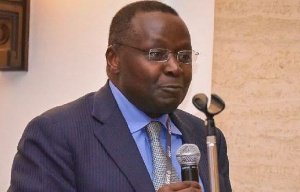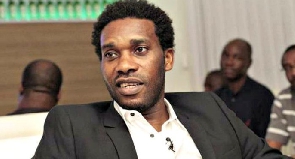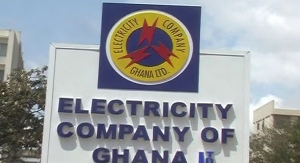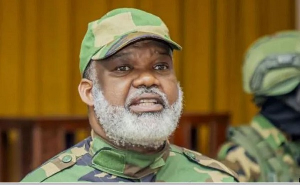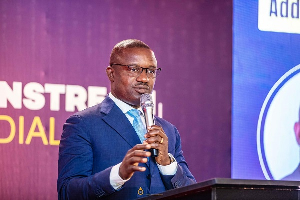The Director of the Centre for Global Finance at the School of African and Oriental Studies (SOAS) at the University of London, has described Ghana’s ongoing efforts to create a digital, formalised economy as a “timely step in the right direction.”
According to Prof Victor Murinde, who is also the AXA Professor in Global Finance at SOAS, the decision by the Nana Akufo-Addo government to adopt technology in its bid to formalise the Ghanaian economy is very laudable, and shows that “Ghana is on the right path.”
Ghana’s “trail blazing” role in the African digitisation agenda is also commendable, Prof Murinde indicated, and urged other African countries to emulate Ghana’s example and move in the direction of digitisation in order to take their rightful place in the ever-evolving world economy.
Prof Victor Murinde commended the Ghana government’s digitisation efforts when he gave the closing remarks at the School after the Vice President of the Republic, Dr Mahamudu Bawumia, had delivered the Distinguished Guest Lecture on Monday 22nd October, 2018.
Speaking on the topic: “The Drive Towards Building a Digital Economy”, Vice-President Bawumia outlined the need for Ghana to rapidly formalise her economy, the Nana Akufo-Addo Government’s resolve to leverage technology to achieve the formalisation agenda, the successes chalked so far, and the way forward.
“Nearly 61 years ago we gained independence and inherited an economy that pointed us in one direction: extract your natural resources and export them to the rest of the world; import what you don’t have through trade and you may rely on external development assistance to fill your development gaps.
“[But] this paradigm has not served us well. Our economy remains colonial, highly informal, undiversified, weak, vulnerable, and lacks the internal capability to renew itself, create jobs and spur innovation. We needed to change course,” Dr Bawumia pointed out.
“We have learnt from our past and have taken lessons from other economies. Sustained and high growth economies have absorbed know-how, technology and knowledge from the rest of the world. We must maximise knowledge diffusion to accelerate our progress in development.
“Therefore, we have resorted to the use of technological innovations to address some of our structural and institutional weaknesses. That is the surest way to leapfrog change,” the Vice-President indicated.
“Our effort to digitize the Ghanaian economy has not been without challenges, especially in the space of the past 22 months,” Vice-President Bawumia continued. “But that has not discouraged us. Someone has to initiate change. We must not relent in pursuing our vision to build good societies.
“Like SOAS as a learning institution, we see ourselves as a government in the context of a continent in transition. To move the continent and its people to a better place, we must adapt technology to overcome old barriers and widen the opportunities for inclusion.”
“Ghana”, Vice-President Bawumia maintained, “has chosen the road to develop a prosperous economy through transformation in the hope to move beyond aid, building on what technology enables us to do now. It is not an easy path. It is a challenge, but we see greater merit in the pursuit of that vision.”
Speaking after the Vice-President’s lecture, Prof Murinde, who is a financial economist, with more than 25 years’ expertise, with senior-level stints at practitioner, policy and consultancy roles for governments and leading international organisations, urged the Ghana government to stay on, and accelerate the pace of the digitisation agenda to help rapidly formalise the economy.
General News of Tuesday, 23 October 2018
Source: classfmonline.com





